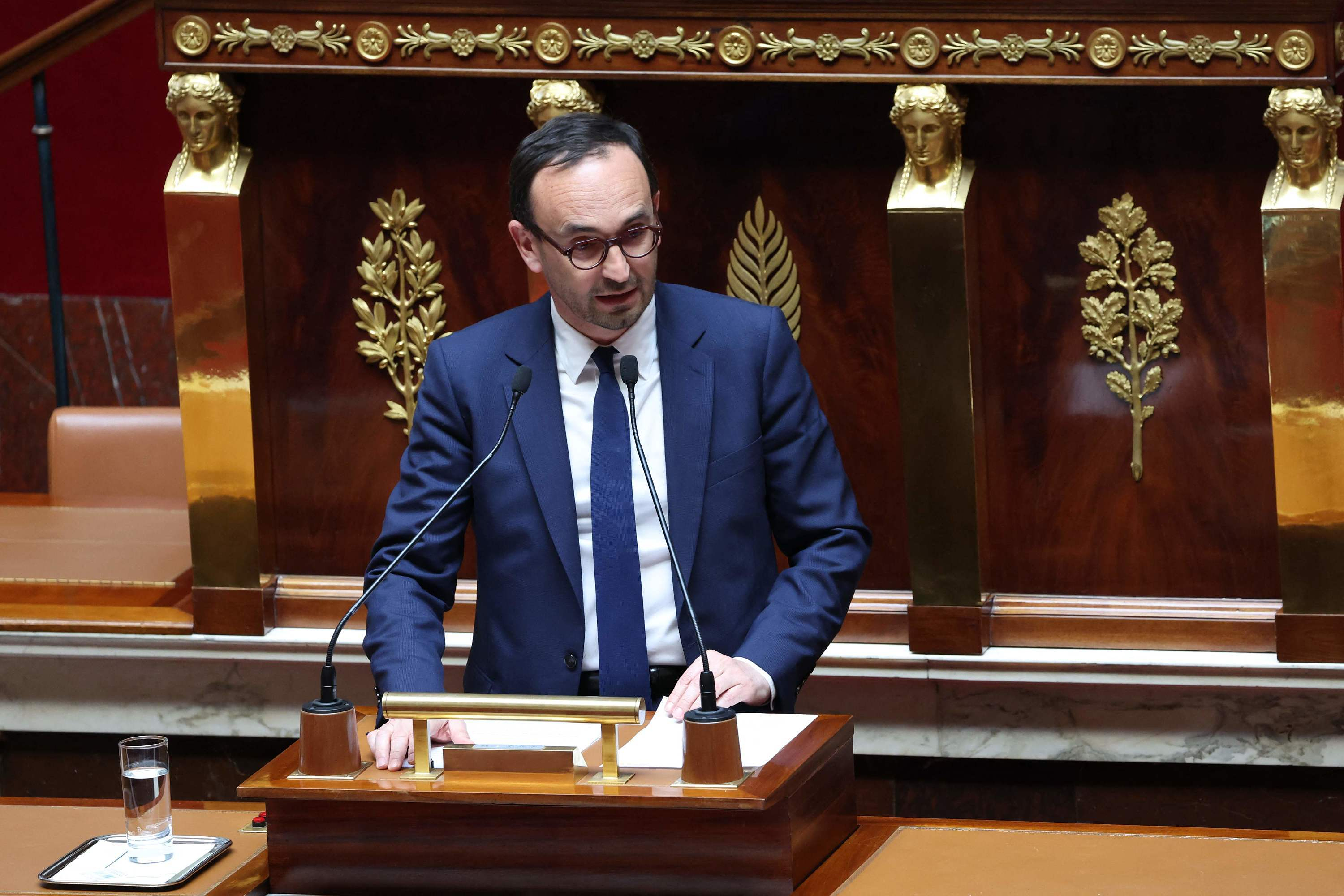Although the battery of fiscal measures it introduced to attract talent and investment attracted most of the attention, the Start Up Law also contemplated the creation of a new body that had gone somewhat unnoticed until now: the National Emerging Business Forum. After completing the development of the ministerial order in July that allowed Enisa to begin the start-up certification process, the Government is now focusing on the constitution of this body.
Already at the end of July, the draft royal decree was published to regulate its operation, and it is expected that the entity will be launched before the end of 2023, regardless of whether or not the new Government is formed. In fact, the draft already arrived somewhat late compared to the six-month period established by the Start Up Law to do so.
Attached to the Ministry of Economic Affairs and Digital Transformation through the Secretary of State for Digitalization and Artificial Intelligence, the draft submitted for consultation clarifies that in principle this body will not affect public spending: its activity will be attended to with ordinary budget allocations and not It will have a specific human structure. Their analysis tasks must be carried out through working groups that are made up of people belonging to the public and private entities represented in the Forum.
"It is an important step to strengthen the entrepreneurial ecosystem in Spain. This body can play a crucial role in promoting innovation and resolving the challenges faced by start-ups in our country, monitoring it in real time," he says. Carlos Mateo, president of the Spanish Startup Association. The entity is one of those that participated in the prior public consultation process, along with FarmaIndustria, Fedit, Orbyn, CEOE, Repsol, the College of Registrars, Adigital, AseBio and SpainCap.
The different entities and associations agree in being favorable to the creation of this body, although they identify some points for improvement.
The most controversial issue has to do with the composition of the entity which, according to the draft royal decree, will have a majority of representatives from the public sector. In particular, the presidency of the National Forum of Emerging Companies will be assumed by Carme Artigas, Secretary of State for Digitalization and Artificial Intelligence, while the vice presidency will fall to the general secretary of Industry and SMEs, Francisco Blanco.
The organization will also have members who will represent the Ministry of Science and Innovation and two State Secretariats, that of Economy and Business Support and that of Migration.
In addition, there will be four members belonging to entities dependent on the General State Administration: Enisa, Icex, Axis -the ICO's venture capital manager- and the CDTI (Center for Industrial Technological Development). All of them will have, at a minimum, the category of general director.
These nine members will be joined by between three and seven members who will represent the entrepreneurial ecosystem. The procedure contemplates that these private sector agents are appointed by the head of the Ministry of Economy, Nadia Calviño, at the proposal of the delegates of Enisa, Icex, Axis and CDTI and taking into account their representativeness at the national level.
Despite the mixed composition, this imbalance between members of the public and private sectors worries the associations, who understand that it can torpedo the objective of opening and promoting dialogue in the field of entrepreneurship. If the proposed distribution does not change in the last process, it would allow the Government to have a starting majority on any issue that is put on the table in this body.
"We consider sectoral representation to be essential and that, in the composition of the Forum, there is a balance between the representation of the public and private sectors, which is why we recommend maximizing the number of members that represent the entrepreneurial ecosystem," says Miguel Ferrer, executive vice president of Adigital strategy and public agenda.
Beyond the fact that specific members can be incorporated into the working groups, the entity has already proposed that the entity have a maximum number of members "not excessively high" -around 20-, which would allow "operational and efficient functioning."
Carlos Mateo explains that the suggestions of the Spanish Startup Association focus on "the need to guarantee a balanced and diverse representation of the start-up and innovation ecosystem in the Forum, ideally 50% public-private", as well as the transparency in the selection of members. Mateo sees it as key to include people with real experience in the world of entrepreneurship, along with other valuable perspectives. For example, making room for actors such as investors and universities. "The priority criteria for the selection of members must be representativeness, experience, knowledge and commitment to the growth of the entrepreneurial sector on a national scale," he emphasizes.
"It will not be the same if there are three or seven representatives from the private sector. That will weigh on the composition," acknowledges Andrés Dancausa, 'general partner' of TheVentureCity and member of the board of directors of SpainCap, who considers that if the execution is good the Forum can be "an exceptional tool." In any case, Dancausa emphasizes that "the most important thing is that the members are aligned" at the level of experience in the entrepreneurial ecosystem. In addition, he advocated for diversity from a sectoral and geographical point of view, an international vision, a commitment to innovation and a commitment to ethics and integrity.
Some organizations, such as the Spanish Confederation of Business Organizations (CEOE), consider that the innovative entrepreneurship sector is so broad and such diverse interests coexist that quotas must be established that limit the profile of the entities that will be represented in the Forum.
In this sense, the Spanish Association of Biocompanies (AseBio) hopes that "one of the votes will be for the biotech sector, which is a deep tech industry with high strategic potential." Specifically, they emphasize that the sector is made up of around 900 biotechnology companies, which are mostly SMEs.
From AseBio, they highlight that many of the proposals made during the prior public consultation have been heard by the Government and included in the draft royal decree. For this reason, the association made the decision not to present allegations to the new document published in July.
It is a vision shared by Miguel Ferrer, who is satisfied with the fact that several of his contributions have been addressed. However, he points out that "we still believe that there is some room for improvement on this latest text and we have transferred it that way." For example, Adigital has requested modifications that shed light on the functions of the Forum and include mentions of public-private collaboration. Likewise, the entity suggests that in order to carry out the tasks assigned to this body, it is "essential to provide it with human and technical support resources."
In parallel, the Forum must also function as a commission to monitor the implementation of the Start Up Law itself. This is highlighted by Carlos Mateo, who indicates that "it will serve to analyze its impact, improve it and keep it updated, guaranteeing the achievement of its objectives." objectives in an ecosystem that evolves as quickly as that of start-ups and innovation.
Until now, the sector values the "constructive dialogue" established with the Government in recent times, especially with regard to the preparation of the regulatory text. The president of the Spanish Startup Association points out that "they have shown interest in listening to our concerns and perspectives, which is a positive sign."
After the latest allegations presented by the sector entities during the public consultation opened in July, the next step is the approval of the royal decree - which will foreseeably include in its final text some of the proposals received - and the final appointment of the members. While waiting for this, the ecosystem remains expectant before the arrival of an unprecedented body in the Spanish entrepreneurial world.
Finally, the Executive proposes that the spirit of the National Forum of Emerging Companies, conceived as a common space for the entire entrepreneurial ecosystem, will make it possible for different companies and entities to launch new collaboration processes to benefit from economies of scope and scale.
The draft royal decree that regulates its operation attributes the following functions to the National Forum of Emerging Companies:

 What is chloropicrin, the chemical agent that Washington accuses Moscow of using in Ukraine?
What is chloropicrin, the chemical agent that Washington accuses Moscow of using in Ukraine? Poland, big winner of European enlargement
Poland, big winner of European enlargement In Israel, step-by-step negotiations for a ceasefire in the Gaza Strip
In Israel, step-by-step negotiations for a ceasefire in the Gaza Strip BBVA ADRs fall almost 2% on Wall Street
BBVA ADRs fall almost 2% on Wall Street Breast cancer: less than one in two French women follow screening recommendations
Breast cancer: less than one in two French women follow screening recommendations “Dazzling” symptoms, 5,000 deaths per year, non-existent vaccine... What is Lassa fever, a case of which has been identified in Île-de-France?
“Dazzling” symptoms, 5,000 deaths per year, non-existent vaccine... What is Lassa fever, a case of which has been identified in Île-de-France? Sánchez cancels his agenda and considers resigning: "I need to stop and reflect"
Sánchez cancels his agenda and considers resigning: "I need to stop and reflect" The Federal Committee of the PSOE interrupts the event to take to the streets with the militants
The Federal Committee of the PSOE interrupts the event to take to the streets with the militants Volvic factory shut down after “an act of malicious intent”: production can resume “at the earliest” on Friday
Volvic factory shut down after “an act of malicious intent”: production can resume “at the earliest” on Friday SNCF: algorithmic video surveillance in stations attacked before the CNIL
SNCF: algorithmic video surveillance in stations attacked before the CNIL Europeans: Macron's speech at the Sorbonne counted as speaking time on the Renaissance list
Europeans: Macron's speech at the Sorbonne counted as speaking time on the Renaissance list The government wants to strengthen its controls on cryptocurrency holders
The government wants to strengthen its controls on cryptocurrency holders Jean Reno publishes his first novel Emma on May 16
Jean Reno publishes his first novel Emma on May 16 Cannes Film Festival: Meryl Streep awarded an honorary Palme d’Or
Cannes Film Festival: Meryl Streep awarded an honorary Palme d’Or With A Little Something Extra, Artus and his disabled actors do better than Intouchable on the first day
With A Little Something Extra, Artus and his disabled actors do better than Intouchable on the first day Madonna ends her world tour with a giant - and free - concert in Copacabana
Madonna ends her world tour with a giant - and free - concert in Copacabana Omoda 7, another Chinese car that could be manufactured in Spain
Omoda 7, another Chinese car that could be manufactured in Spain BYD chooses CA Auto Bank as financial partner in Spain
BYD chooses CA Auto Bank as financial partner in Spain Tesla and Baidu sign key agreement to boost development of autonomous driving
Tesla and Baidu sign key agreement to boost development of autonomous driving Skoda Kodiaq 2024: a 'beast' plug-in hybrid SUV
Skoda Kodiaq 2024: a 'beast' plug-in hybrid SUV The home mortgage firm rises 3.8% in February and the average interest moderates to 3.33%
The home mortgage firm rises 3.8% in February and the average interest moderates to 3.33% This is how housing prices have changed in Spain in the last decade
This is how housing prices have changed in Spain in the last decade The home mortgage firm drops 10% in January and interest soars to 3.46%
The home mortgage firm drops 10% in January and interest soars to 3.46% The jewel of the Rocío de Nagüeles urbanization: a dream villa in Marbella
The jewel of the Rocío de Nagüeles urbanization: a dream villa in Marbella Europeans: a senior official on the National Rally list
Europeans: a senior official on the National Rally list Blockade of Sciences Po: the right denounces a “drift”, the government charges the rebels
Blockade of Sciences Po: the right denounces a “drift”, the government charges the rebels Even on a mission for NATO, the Charles-de-Gaulle remains under French control, Lecornu responds to Mélenchon
Even on a mission for NATO, the Charles-de-Gaulle remains under French control, Lecornu responds to Mélenchon “Deadly Europe”, “economic decline”, immigration… What to remember from Emmanuel Macron’s speech at the Sorbonne
“Deadly Europe”, “economic decline”, immigration… What to remember from Emmanuel Macron’s speech at the Sorbonne These French cities that will boycott the World Cup in Qatar
These French cities that will boycott the World Cup in Qatar OM-Atalanta: the lines of the match
OM-Atalanta: the lines of the match Ligue 1: Lorient supporters invade the training center
Ligue 1: Lorient supporters invade the training center Hand: Montpellier overthrown by Kiel in the Champions League
Hand: Montpellier overthrown by Kiel in the Champions League Tennis: Medvedev gives up, Lehecka in semi-finals
Tennis: Medvedev gives up, Lehecka in semi-finals


















